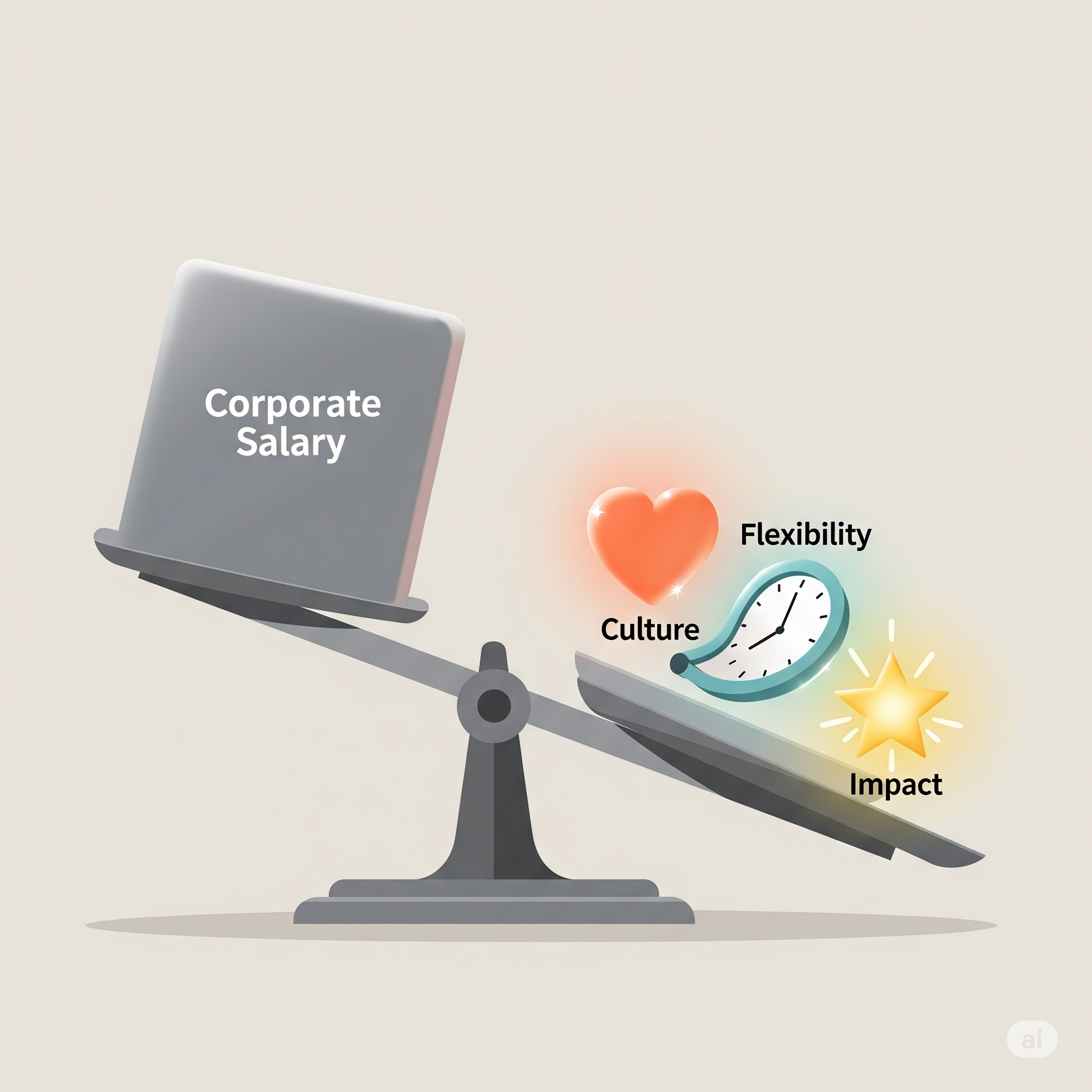The true hallmark of exceptional leadership isn’t just the heights we ourselves reach, the deals we close, or the visions we bring to life. While those achievements are certainly markers of success, I believe the most profound impact a leader can have is in their ability to cultivate more leaders. It’s about looking beyond your own tenure and actively investing in the growth and potential of others. It’s about passing the torch. This isn’t just a philosophical ideal; it’s a practical, powerful strategy for ensuring the enduring success and relevance of any organization in today’s fast-paced and ever-changing world.
In today’s relentlessly dynamic and often unpredictable business landscape, where disruption is the norm and change is the only constant, building a future-ready organization isn’t just about adopting the latest technology or perfecting your business model. These elements are vital, of course, but without the right people in place – equipped with the skills, knowledge, and mindset to navigate complexity and seize opportunities – even the most brilliant strategies can falter. The human element remains, and will always remain, the most critical variable. And a key, often underestimated, driver of organizational resilience, innovation, and long-term success is the power of mentorship.
Mentorship, in its most impactful form, is far more than a formal program where a senior executive is paired with a junior employee for a few structured meetings. While these programs can provide a valuable framework, the true transformative power of mentorship lies in the cultivation of genuine, trust-based relationships built on mutual respect and a shared commitment to growth. It’s a dynamic, often serendipitous, connection where wisdom flows freely, perspectives are challenged, and potential is unlocked. It is, fundamentally, a two-way street, enriching both the mentor and the mentee, and creating a ripple effect that strengthens the entire fabric of an organization, fostering a culture of continuous learning and development that becomes a powerful competitive advantage.
I’ve had the incredible fortune throughout my career to experience the profound impact of both being mentored and mentoring others. I still vividly remember a challenging period early on when I felt adrift, unsure of my next steps in a complex corporate environment. The challenges seemed daunting, and the path forward was murky. A seasoned leader, someone I deeply admired for their strategic thinking and their calm under pressure, saw something in me that I didn’t quite see in myself at the time. They reached out, not with a formal offer of mentorship, but with an invitation for a casual conversation that evolved into something far more meaningful. They didn’t just offer generic advice; they offered personalized perspective, drawing on their own experiences to illuminate potential pitfalls and opportunities I hadn’t considered. They challenged my assumptions, pushing me gently outside my comfort zone to consider bolder approaches, and, most importantly, they conveyed a genuine belief in my potential even when I doubted it myself. That relationship wasn’t just about career guidance; it was about personal growth, building confidence in my abilities, and learning how to navigate the complexities of the business world with integrity, strategic foresight, and resilience. It was, in a very real sense, a torch being passed, illuminating the path ahead with the light of experience and encouragement.
And I’ve seen this play out time and again, not just in my own journey, but in the countless individuals and organizations I’ve worked with and observed. The companies that consistently innovate, adapt to market shifts, and thrive in the face of adversity are often those where a vibrant culture of mentorship is deeply embedded – where experienced hands are not only willing but eager to share their accumulated wisdom, and where aspiring leaders are hungry to learn, grow, and eventually, carry that torch forward themselves. It’s a cycle of development that fuels organizational vitality.
Why Mentorship Matters: A Multifaceted Impact That Resonates Throughout the Organization
The benefits of mentorship extend far beyond the individual mentor-mentee pairing. They create a powerful ripple effect that resonates throughout the organization, impacting everything from individual employee engagement and retention to the collective capacity for knowledge transfer and strategic agility. It’s an investment with a remarkable return, not just in terms of individual careers, but in the overall health and future-readiness of the company.
For the mentee, the advantages are numerous and often profoundly impactful, shaping not just their professional trajectory but their personal development as well. Through the guidance of a mentor, they gain invaluable insights based on years, sometimes decades, of accumulated experience. This translates into practical advice tailored to their specific situation, helping them navigate complex challenges, avoid common pitfalls, and learn from the mentor’s successes and, perhaps more importantly, their mistakes. This kind of personalized guidance accelerates the mentee’s learning curve significantly, allowing them to acquire skills, knowledge, and nuanced understanding faster and more effectively than they ever could through formal training programs or solitary on-the-job experience.
Furthermore, a mentor can act as a crucial guide in navigating the often-complex landscape of career development. They help the mentee clarify their career goals, identify opportunities for advancement that they might not have otherwise recognized, and develop a realistic yet ambitious roadmap for achieving their aspirations. Mentors often open doors, providing invaluable networking opportunities by introducing mentees to key individuals within and outside the organization. They can also act as powerful advocates for the mentee, championing their potential and helping them gain visibility for their contributions. Navigating organizational politics and understanding unwritten rules, which can often be a source of frustration for emerging leaders, becomes much clearer with the guidance of an experienced mentor.
Beyond career advancement, mentorship significantly contributes to a mentee’s increased confidence and self-awareness. The mentorship relationship provides a safe and supportive space for mentees to explore their strengths and weaknesses openly, receive honest and constructive feedback without fear of negative repercussions, and build confidence in their abilities. A good mentor offers not just critique but also genuine encouragement and unwavering belief, empowering the mentee to step outside their comfort zone, take on new challenges, and push the boundaries of what they thought was possible.
Mentors, often operating at higher levels within the organization or possessing diverse experiences from various roles or even different industries, can expose mentees to broader perspectives on the business, the competitive landscape, and the market dynamics. This exposure is crucial for helping mentees develop more strategic thinking and understand how their individual role and contributions fit into the bigger picture of the organization’s mission and goals. It moves them beyond a purely tactical focus to a more holistic and strategic view.
The increased networking and visibility gained through mentorship are also significant benefits. Being mentored by a respected leader within the organization can significantly raise a mentee’s profile and expand their professional network in ways that might take years to build independently. Mentors can make introductions to key people, facilitating connections that will be valuable throughout the mentee’s career and opening doors to new opportunities.
Ultimately, for the mentee, the support and investment demonstrated through mentorship often lead to enhanced job satisfaction and engagement. Employees who feel that their organization is invested in their growth and development are more likely to be motivated, committed, and satisfied with their work. This sense of being valued fosters loyalty and contributes significantly to reduced employee turnover, a critical factor in organizational stability and cost savings.
But, as I mentioned earlier, mentorship is not a one-sided equation. The mentor also gains significant, often unexpected, rewards from the relationship. Guiding and developing others serves as a powerful catalyst for strengthening a mentor’s own leadership, communication, and coaching skills. The act of articulating their experiences, explaining complex concepts, and offering tailored advice forces mentors to reflect on their own journey, refine their approaches, and gain a deeper understanding of their own leadership style.
Furthermore, mentees, often being closer to the latest technological trends, emerging market dynamics, or the day-to-day realities of different parts of the business, can offer mentors fresh perspectives and new insights. This concept of “reverse mentorship,” where the mentee teaches the mentor, can be incredibly valuable for experienced leaders seeking to stay current and avoid complacency.
There’s also a deep and often profound sense of job satisfaction and personal fulfillment that comes from helping another person grow and succeed. Mentoring provides a meaningful way for experienced leaders to give back, share the wisdom accumulated over their careers, and contribute to the development of the next generation of leaders. This can be a powerful source of motivation and purpose.
An expanded network is another benefit for mentors. They often gain access to the mentee’s network and can build relationships with other emerging leaders within the organization, creating new avenues for collaboration and knowledge exchange. Being an effective mentor also enhances a leader’s recognition and reputation within the organization and the broader industry. It positions them as someone who is genuinely invested in talent development and organizational success, further solidifying their standing as a respected and influential leader. Finally, mentoring can help senior leaders stay connected to the front lines of the business, gaining valuable insights into the challenges and opportunities faced by employees at different levels, which can inform their own strategic decision-making.
For the organization as a whole, a strong, vibrant culture of mentorship translates into tangible and significant business benefits that contribute directly to the bottom line and long-term sustainability. One of the most critical is enhanced knowledge transfer and succession planning. Mentorship provides a natural and effective channel for transferring institutional knowledge, best practices, unwritten rules, and organizational culture from experienced employees to newer ones. This is absolutely crucial for effective succession planning, ensuring continuity of leadership and expertise when key personnel retire or move on to other opportunities.
Improved employee engagement and retention are direct outcomes of a thriving mentorship culture. As I highlighted earlier, when employees feel supported, invested in, and see a clear path for growth within the organization, their morale and job satisfaction increase significantly. This leads to higher levels of engagement, increased productivity, and, crucially, reduced turnover costs, which can be substantial.
A culture that encourages mentorship also fosters increased innovation and creativity. Mentorship encourages the free and open exchange of ideas and perspectives across different levels, departments, and functions. Mentees, feeling supported and empowered by their mentors, are often more comfortable sharing new ideas, even those that might seem unconventional at first glance. This cross-pollination of ideas can lead to unexpected breakthroughs and a more dynamic, innovative work environment.
Perhaps most importantly, a robust mentorship program helps build a stronger leadership pipeline. It provides a structured yet flexible mechanism for identifying and developing future leaders from within the organization. By nurturing the potential of high-performing employees, organizations ensure they have a steady supply of capable and prepared individuals ready to step into leadership roles as opportunities arise. This reduces reliance on external hiring, which can be costly and time-consuming.
Furthermore, mentorship can be a powerful tool for enhancing diversity and inclusion within leadership ranks. By intentionally pairing mentors with mentees from underrepresented groups, organizations can provide crucial support, guidance, and advocacy, helping to break down barriers and foster a more diverse and inclusive leadership team that better reflects the broader workforce and customer base.
Ultimately, a culture of mentorship contributes significantly to an improved overall organizational culture. It fosters an environment of continuous learning, mutual support, open communication, and collaboration. This kind of positive and productive work environment not only attracts top talent but also keeps employees motivated and engaged.
And in a world of constant change, organizations with strong mentorship programs tend to be more adaptable and resilient. They have a more skilled and knowledgeable workforce, a culture that embraces learning and innovation, and established channels for transferring critical information and best practices. This allows them to respond more effectively to market shifts, technological advancements, and unforeseen challenges.
The Anatomy of Effective Mentorship: Cultivating a Relationship That Goes Beyond the Checklist
Simply pairing two people together and hoping for the best is unlikely to yield the transformative results that true mentorship can offer. Effective mentorship is a conscious, deliberate process that requires commitment, effort, and a willingness to be vulnerable from both the mentor and the mentee, all supported by a conducive organizational environment. It’s a relationship that thrives on trust, open communication, and a shared purpose of growth.
Think about the key characteristics that define an effective mentor – the individuals who truly make a difference in the lives and careers of their mentees. First and foremost, they have a genuine interest in the mentee’s growth and success. This goes beyond a mandated task; it’s a sincere desire to help another person reach their full potential. They possess relevant experience and knowledge to share, not necessarily being the ultimate expert in every field, but having valuable insights gained from their own journey and expertise.
Crucially, effective mentors are exceptional listeners. Mentorship is not a platform for the mentor to simply dispense wisdom; it’s a dialogue. A good mentor actively listens, seeking to deeply understand the mentee’s challenges, aspirations, and perspectives. They offer guidance and support, but they avoid simply dictating solutions. Instead, they often ask powerful, open-ended questions that encourage the mentee to think critically, explore different angles, and arrive at their own conclusions. This approach fosters the mentee’s problem-solving skills, builds their confidence in their own judgment, and promotes self-reliance.
Constructive feedback is another hallmark of effective mentorship. Mentors provide honest, specific, and actionable feedback, delivered in a supportive manner. They highlight the mentee’s strengths, helping them to recognize and leverage their talents, but they also provide constructive criticism on areas for improvement. This feedback is delivered with the intention of helping the mentee grow, not to criticize or discourage. Sharing stories and personal experiences is also a powerful tool in a mentor’s arsenal. Anecdotes about their own triumphs, challenges, and lessons learned make their guidance more relatable and impactful, demonstrating that the path to success is rarely linear or without obstacles.
An effective mentor acts as a guide, not a guru. They understand that they don’t have all the answers and that the mentee is ultimately responsible for their own journey and decisions. Their role is to provide support, offer resources, and illuminate possible paths, but they empower the mentee to make their own choices. Maintaining confidentiality is absolutely paramount. The mentorship relationship must be a safe space where mentees feel comfortable sharing their challenges, fears, and vulnerabilities without any fear of judgment or disclosure. Trust is the bedrock of this relationship, and confidentiality is essential to building and maintaining that trust. Finally, effective mentors are committed to the relationship. They dedicate time and effort, scheduling regular meetings, being responsive to the mentee’s needs, and following through on their commitments. Their consistency and reliability demonstrate their genuine investment in the mentee’s growth.
On the other side of the equation are the characteristics of an effective mentee. These individuals are proactive and take initiative, understanding that the responsibility for driving the relationship lies largely with them. They initiate meetings, come prepared with specific questions and topics for discussion, and actively seek out guidance and feedback. They are open to feedback, even when it’s difficult to hear, understanding that constructive criticism is a gift that can help them grow and improve. A good mentee is receptive to different perspectives and willing to consider alternative approaches.
Effective mentees are also clear, or are working towards clarity, on their goals. While a mentor can certainly help a mentee refine their aspirations and develop a plan, the mentee should have a general idea of what they hope to gain from the mentorship relationship and communicate those aspirations openly to their mentor. Respect for the mentor’s time is crucial. Mentees should be mindful of their mentor’s busy schedule, be punctual for meetings, and come prepared to make the most of the time allocated, ensuring the discussions are focused and productive.
Following through on commitments is a key indicator of an effective mentee. If a mentor suggests an action item, recommends a resource, or makes an introduction, the mentee should follow through and be prepared to discuss their progress, challenges, or learnings at subsequent meetings. This demonstrates their commitment to the process and their respect for the mentor’s guidance. Effective mentees communicate clearly and honestly with their mentor about their progress, the challenges they are facing, and what they need from the relationship. Open and transparent communication is vital for the relationship to thrive. And finally, showing gratitude and appreciation for the mentor’s time, effort, and guidance is essential for nurturing the relationship and acknowledging the value being provided. A simple thank you, a brief update on progress, or acknowledging the impact of their advice can go a long way.
Building a Culture of Mentorship: More Than Just Checking a Box
Creating a truly thriving culture of mentorship within an organization requires more than simply launching a formal program and hoping for the best. It necessitates a conscious and sustained effort to embed the principles of guidance, support, knowledge sharing, and continuous learning into the very DNA of the organization. It’s about fostering an environment where mentorship is not seen as an extracurricular activity, but as an integral and valued part of professional development and leadership growth at all levels.
Leadership buy-in and active role modeling are absolutely foundational. Mentorship must be championed from the very top of the organization. When senior leaders actively participate in mentorship, both as mentors sharing their wisdom and, where appropriate, as mentees seeking new perspectives, it sends a powerful message throughout the organization about the value and importance of these relationships. Their active involvement sets the tone and encourages others to participate.
While informal mentorships are incredibly valuable and often arise organically, establishing a formal mentorship program can provide a structured framework for connecting mentors and mentees, especially in larger organizations. This program can offer guidance on roles and responsibilities, provide resources such as training materials and suggested discussion topics, and help facilitate initial connections. However, it’s crucial that formal programs are designed with enough flexibility to allow for the natural evolution of relationships and to accommodate the informal mentorships that will undoubtedly arise outside of the structured program.
Providing training and resources for both mentors and mentees is essential for maximizing the effectiveness of the relationships. Mentors can benefit from training on active listening skills, providing constructive feedback, setting boundaries, and guiding challenging conversations. Mentees can benefit from guidance on setting goals, preparing for meetings, actively seeking feedback, and driving the relationship forward. Offering resources such as suggested discussion topics, goal-setting frameworks, and communication tips can also be incredibly helpful.
Clearly defining expectations for the mentorship program is important, but again, avoid being overly rigid. Provide guidelines on the purpose of the program, the expected commitment (e.g., frequency of meetings), and the general roles of mentors and mentees. However, allow the specific focus and direction of each individual relationship to evolve naturally based on the needs and interests of the individuals involved. The most impactful mentorships are often those that are tailored to the unique circumstances of the mentee.
Thoughtful matching is a critical component of a successful formal program. Consider using a combination of criteria for matching mentors and mentees, including their skills, experience, career goals, and even personality traits. Seek input from both parties in the matching process, and where possible, give mentees some choice in who they are paired with. It’s also important to have a process in place for addressing mismatches and allowing participants to switch mentors if necessary to ensure a positive and productive relationship.
Encouraging diverse pairings is a powerful strategy for fostering a more inclusive and innovative culture. Promote mentorship relationships that cross departments, organizational levels, functional areas, and demographic backgrounds. Diverse pairings expose both the mentor and the mentee to different perspectives, experiences, and ways of thinking, which can lead to richer learning experiences, challenge assumptions, and foster a greater appreciation for diversity within the organization.
Integrating mentorship into performance management and employee development processes sends a strong signal about its importance. Recognize and reward employees who actively participate in mentorship, both as mentors contributing to the growth of others and as mentees who are actively seeking to develop themselves. Include mentorship goals in performance reviews and individual development plans, demonstrating that contributing to and benefiting from mentorship is valued and contributes to career progression.
Sharing success stories of impactful mentorships through internal communications, company newsletters, town halls, and other forums can inspire others to get involved and highlight the tangible benefits of mentorship. Highlighting specific examples of how mentorship has contributed to individual and organizational success creates positive role models and reinforces the value of the program.
Creating opportunities for informal connection is also crucial. Encourage spontaneous interactions between employees at different levels and across different teams. This could include organizing informal social events, creating cross-departmental project teams, or establishing online forums for knowledge sharing and discussion. These informal connections often blossom into valuable mentorship relationships organically, outside of the formal program structure.
Leveraging technology can significantly enhance the reach and effectiveness of mentorship initiatives, especially in distributed or hybrid work environments. Utilize technology platforms specifically designed for mentorship programs to facilitate connections between mentors and mentees, provide access to resources, track the progress of relationships, and gather feedback from participants. Communication tools and video conferencing can also support regular interaction between mentors and mentees who are not in the same physical location.
Finally, it’s important to measure and evaluate the impact of your mentorship initiatives. Track relevant metrics such as employee engagement levels, retention rates for participants in the program, promotion rates for mentees, and qualitative feedback from both mentors and mentees. Use this data to assess the effectiveness of your program, identify areas for improvement, and demonstrate the return on investment of your mentorship initiatives to leadership.
Beyond the Formal Program: Recognizing and Nurturing the Power of Informal Mentorship
While formal mentorship programs provide a valuable structure, it’s important to recognize that many of the most powerful and impactful mentorship relationships develop organically, outside of any structured initiative. These informal mentorships often arise from natural connections, shared interests, mutual respect, or simply a mentee feeling comfortable reaching out to someone they admire for advice and guidance.
Organizations should actively recognize and encourage these informal relationships by fostering a culture of open communication, collaboration, and knowledge sharing at all levels. When employees feel empowered and supported to seek out guidance from colleagues, regardless of their formal reporting lines, it significantly strengthens the entire organization’s learning capacity and creates a more connected and supportive work environment. Leaders can encourage this by being approachable, modeling help-seeking behavior themselves, and recognizing employees who are generous with their time and expertise in supporting others.
Navigating the Bumps in the Road: Addressing Challenges in Mentorship
Like any significant relationship, mentorship can face challenges. Recognizing these potential hurdles and proactively addressing them is key to fostering successful and sustainable mentorships that deliver on their promise. One of the most common challenges is a perceived or actual lack of time. In today’s fast-paced business environment, both mentors and mentees often have demanding schedules. Organizations can help alleviate this by making mentorship a recognized and valued activity, potentially allocating specific time for mentorship meetings, and promoting flexible scheduling options. Mentors and mentees themselves can overcome this by being proactive in scheduling meetings well in advance, being punctual, and coming prepared to make the most efficient use of their time together.
Poor matching in formal programs can also be a significant hurdle. A mismatch in personalities, communication styles, goals, or areas of expertise can hinder the development of a productive relationship. Thoughtful matching processes, potentially involving input from both the mentor and mentee candidates, and the option for participants to request a different mentor if the initial pairing is not working, are crucial for addressing this challenge.
Unclear expectations about the purpose, frequency of meetings, or roles and responsibilities within the mentorship can lead to confusion and disengagement. Providing clear guidelines and resources at the outset of the program, while still allowing for flexibility in how the relationship evolves, can help set realistic expectations and ensure both parties are on the same page.
A lack of engagement from either the mentor or the mentee will inevitably lead to the relationship fizzling out. If a mentor is not invested, they may not prioritize meetings or provide meaningful guidance. If a mentee is not proactive, they may not seek out their mentor or follow through on suggestions. Organizations can encourage engagement by highlighting the benefits of participation and incorporating mentorship into development plans. Mentees, in particular, should understand the value of driving the relationship and coming prepared to utilize their mentor’s time effectively.
Personality clashes, while sometimes unavoidable, can also pose a challenge. Not every personality combination will be a perfect fit, and forcing a relationship that isn’t working can be counterproductive. Open communication within the program structure, and the option to find a different mentor, are important safety valves.
Fear of vulnerability can be a significant barrier for mentees. They may be hesitant to share their challenges, insecurities, or mistakes with a mentor, fearing judgment or negative repercussions. Mentors can create a safe and trusting space by emphasizing confidentiality, sharing their own experiences of overcoming challenges, and demonstrating empathy and understanding. Building trust takes time and consistent effort from both parties.
Finally, a lack of visible support from organizational leadership can undermine mentorship initiatives. If mentorship is not valued, recognized, or integrated into organizational processes, employees may not see it as a worthwhile investment of their time and energy. Leadership buy-in, active participation, and clear communication about the importance of mentorship are crucial for creating a supportive environment where mentorship can thrive.
Mentorship and the Future-Ready Organization: Passing on More Than Just Knowledge
In a world characterized by volatility, uncertainty, complexity, and ambiguity – the dreaded VUCA world – the ability of organizations to adapt, innovate, and lead through continuous change is not just an advantage; it’s a necessity for survival and success. Mentorship plays an absolutely critical role in building organizations that are not merely reactive to change, but are proactively shaping their own future.
By intentionally investing in mentorship, organizations are, in essence, making a profound investment in their future leadership capacity. They are actively equipping individuals at all levels with the skills, knowledge, strategic foresight, and resilience needed to navigate complex challenges, identify and seize new opportunities, and lead with purpose and integrity in an ever-changing environment. Mentorship helps to bridge skill gaps, transfer critical institutional knowledge that is not easily captured in manuals, and cultivate the kind of adaptive mindset essential for future success.
Moreover, a strong and pervasive culture of mentorship contributes significantly to building a lasting legacy of leadership within the organization. It’s about passing on more than just technical skills or operational knowledge; it’s about transmitting values, sharing hard-won wisdom, and instilling a deep-seated commitment to excellence and ethical leadership. It creates a virtuous cycle where today’s leaders are actively engaged in developing the leaders of tomorrow, ensuring that the organization’s mission, values, and impact endure and evolve far beyond any individual’s tenure. This focus on developing others becomes a defining characteristic of the organization itself, attracting talent who are seeking growth and development opportunities.
As I reflect on my own leadership journey, and the countless individuals who have inspired, challenged, and guided me along the way – the mentors who saw potential, the colleagues who offered different perspectives, the team members who taught me the power of collaboration – I am deeply grateful for the transformative power of mentorship in all its forms. It is a gift that truly keeps on giving, enriching individual lives and careers, strengthening the bonds within organizations, and ultimately shaping the future of leadership for the better.
Whether you are a seasoned leader with a wealth of experience, insights, and lessons learned to share, or an aspiring leader eager to learn, grow, and accelerate your development, I wholeheartedly encourage you to embrace the transformative power of mentorship. Seek out mentors who can challenge your thinking, expand your horizons, and support you on your journey. Become a mentor yourself and experience the profound fulfillment and renewed perspective that comes from helping others reach their full potential. Champion mentorship within your team and your organization and contribute to building a culture where passing the torch is not just encouraged, but is a celebrated and integral part of the leadership journey for everyone.
The future belongs to organizations that are not only strategically agile and technologically advanced but are also built on a strong foundation of exceptional leadership, empowered and collaborative teams, and a relentless commitment to continuous growth and innovation. And at the heart of cultivating these essential elements lies the transformative power of mentorship – the intentional art of passing the torch, igniting potential in others, and collectively shaping a brighter, more successful future for individuals and organizations alike.
What are your experiences with mentorship? Have you had a mentor who significantly impacted your career or life in a meaningful way? Are you currently mentoring someone, and what have you learned from that experience? What challenges have you faced in mentorship, and how have you overcome them? Share your stories, insights, and perspectives in the comments below. Let’s continue this vital conversation and collectively contribute to building a global community of leaders committed to the power of passing the torch and sparking ingenuity in others!






